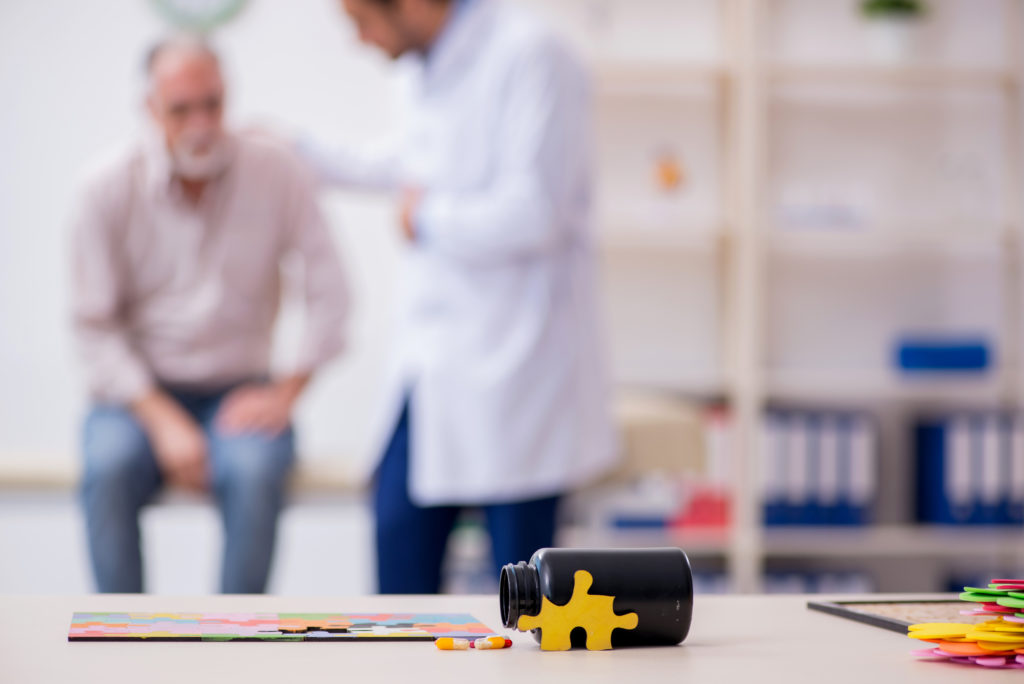Quick Hits
Daily brief research updates from the cognitive sciences

Understanding the link between dementia, brain health, and various metabolic disorders such as obesity is important and gives us important clues in guiding brain health particularly as we age.
Researchers around Amanda Lumsden of the University of South Australia have just published the results of a large-scale study and found some interesting corelations.
In this study they analysed data from 26,239 people in the UK Biobank and found that those with obesity related to liver stress, or to inflammation and kidney stress, had the most adverse brain findings. They measured associations of six diverse metabolic profiles and 39 cardiometabolic markers with MRI brain scan measures of brain volume, brain lesions, and iron accumulation, in order to identify early risk factors for dementia.
People with metabolic profiles linked to obesity were more likely to have adverse MRI profiles with:
-
- lower hippocampal volume (key memory centre)
- grey matter volumes (grey matter is related to general cognition)
- greater burden of brain lesions
- higher accumulation of iron
What was also surprising is the relationship to an individual’s Basal Metabolic Rate (BMR) – the BMR is how much energy your body uses when resting. This BMR is higher in those with obesity but it sems that the BMR is more influential on adverse brain markers than anything else.
So, it seems that a better measure is the BMR – this may sound surprising i.e. using more energy while resting might sound like a good fat-burning trick but it may also represent lower activity – when we ramp up activity metabolic rate increase during activity but sinks lower while resting. This may give your cells a better rest, recovery, and reset.
So, metabolism is a better predictor of brain health – and lower resting metabolism is actually related to higher general activity. Therefore, get moving to help avoid dementia and adverse brain effects!

Andy Habermacher
Andy is author of leading brains Review, Neuroleadership, and multiple other books. He has been intensively involved in writing and research into neuroleadership and is considered one of Europe’s leading experts. He is also a well-known public speaker, speaking on the brain and human behaviour.
Andy is also a masters athlete (middle distance running) and competes regularly at international competitions (and holds a few national records in his age category).
References
Amanda L. Lumsden, Anwar Mulugeta, Ville Petteri Mäkinen, Elina Hyppönen.
Metabolic profile based subgroups can identify differences in brain volumes and brain iron deposition.
Diabetes, Obesity and Metabolism, 2022
DOI: 10.1111/dom.14853
More Quick Hits
Your brain on near-death experiences
Near-death experiences have fascinated many people ever since they have been reported. And these experiences guide our view of how we die: the memories of your life passing in front of your eyes, the tunnel of light, the floating movement towards a bright light....
Social networks grow your brain
The headline is a bit “click baity” but it is what a group of researchers found. To be more specific they found in macaques (cute monkeys) in the wild that having more grooming partners grew different regions of the brain. Grooming is the primate version of having a...
What do creative brains look like?
We’d probably all be happy to be a bit more creative — though research into our own opinions show that many people do actually consider themselves to be above average in creativity. An obvious self-bias. This is where scientists who study creativity come in and find...
New gender biases discovered
There have been many studies on gender biases, and I have followed, written, and spoken about many of these biases over the years (over a decade actually) but two studies have just come out that caught my eye. One out of New York University focused on gender natural...
Growth of your brain over your life
So, we all know that our brain grows very quickly as babies and children and then after a certain age, younger than some of us may like to think, there begins a slow decline. But precisely what and how is the question. Well, this is a question that an international...
How to reduce loneliness
I have reported multiple times on loneliness during the pandemic – mostly because interest and research into loneliness has taken a large uptick. I have also reported on how to combat this and was happy to see that a piece of research just out proved what I had...






